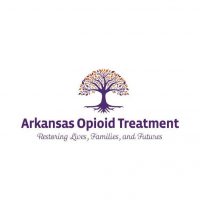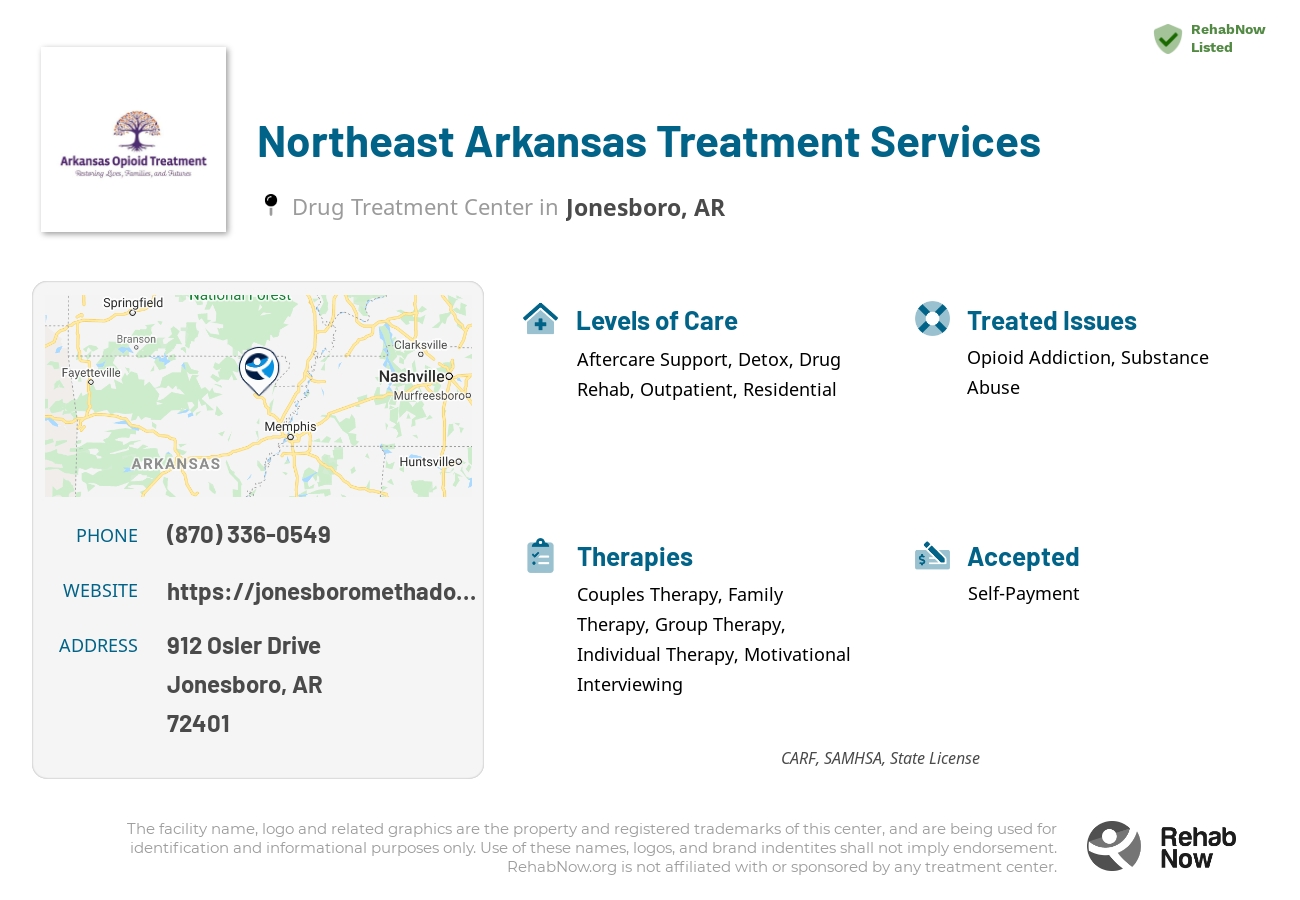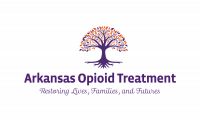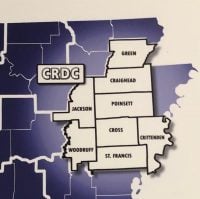Northeast Arkansas Treatment Services
Drug Rehab Center in Jonesboro, Arkansas
Northeast Arkansas Treatment Services offers a full spectrum of evidence-based treatment services and programs, such as 12-step facilitation, cognitive behavioral therapy, couples therapy, family therapy and individualized treatment plans, with the aim of helping individuals and their families create a lasting recovery.
About Northeast Arkansas Treatment Services in Arkansas
Northeast Arkansas Treatment Services in Jonesboro, AR, offers a specialized and supportive approach to overcoming drug and alcohol addiction, focusing notably on opioid dependence. The center employs a unique combination of methadone treatment and comprehensive mental health counseling on an outpatient basis, tailored to each individual's needs. The use of FDA-approved medications alongside therapy underlines their holistic approach to recovery.
- Medication-Assisted Treatment: Utilizes methadone to ease withdrawal symptoms and curb cravings, supervised by medical professionals.
- Individualized Counseling: Offers mental health counseling to address the underlying causes of addiction and develop relapse prevention strategies.
- Tailored Recovery Plans: Engages clients in building a sustainable path to sobriety through detailed assessments and customized treatment strategies.
Accredited by SAMHSA, CARF, and licensed by the state of Arkansas, Northeast Arkansas Treatment Services emphasizes a meticulous, client-centered approach. The program's structure integrates both medical and psychological support, ensuring a well-rounded treatment experience for individuals striving to regain control over their lives.
The center focuses on treating men and women grappling with opioid addiction, among other substance use issues. By combining medication-assisted treatment with various therapeutic techniques, Northeast Arkansas Treatment provides a comprehensive level of care that includes outpatient services tailored to each person's journey towards recovery.
Genders
Ages
Modality
Additional
Accreditations
State License
SAMHSA

CARF
The Commission on Accreditation of Rehabilitation Facilities (CARF) is a non-profit organization that specifically accredits rehab organizations. Founded in 1966, CARF's, mission is to help service providers like rehab facilities maintain high standards of care.
Conditions and Issues Treated
Some addicts can benefit from substance abuse treatment, which is designed to help them become and remain sober without the use of medications. These programs are typically used by those struggling with drugs like marijuana or hallucinogens. However, they might be beneficial for those with a co-occurring mental health disorder like schizophrenia, major depression or bipolar disorder.
During this type of treatment, the addict will meet with therapists and other professionals on a regular basis to learn coping skills and healthy ways to deal with their addiction and mental health disorder.
Treatment programs often combine medications with counseling, support groups and even medical services like those found in hospitals or doctor’s offices. There are also detoxification services that addicts can use to get sober and avoid severe withdrawal symptoms.
Opioids are a group of drugs that include substances such as heroin, morphine, and oxycodone. These drugs activate opioid receptors in the brain, which produce pleasurable feelings. Opioid addiction occurs when drugs are abused at increasing rates or increasing amounts because the body becomes tolerant of them.
Opioid addiction is typically diagnosed when drug abuse becomes a typical behavior that interferes with an individual’s ability to function daily. The use of the substance results in consequences like legal problems.
Treatment for opioid addiction varies depending on each individual’s needs. Some treatments focus on replacing opioids with other drugs that have similar effects of reducing withdrawal symptoms. Other treatments aim to reduce the risk of relapse by providing psychological support or using more natural methods.
Levels of Care Offered
This center offers a variety of custom treatment tailored to individual recovery. Currently available are Aftercare Support, Detox, Drug Rehab, Outpatient, Residential, with additional therapies available as listed below.
Detox, or detoxification, is the method of weaning a person’s body from the toxic substance(s) they have abused. This is a slow process under medical supervision and one that should occur for almost all individuals. As detox can cause medical complications, it should always be performed by experienced medical professionals in a safe setting.
Outpatient programs offer a lower intensity level of addiction treatment than inpatient facilities. They are ideal for those who have graduated from inpatient facilities, have a supportive home environment, and are motivated to commit to the program. Services offered include medication-assisted treatment, individual and group therapy, and peer group support.
This treatment is a popular option for those suffering from a lower intensity addiction. It is not advisable for someone who needs to go through a medically supervised detox or does not have a supportive home environment. It requires motivation and dedication to commit to the program without constant monitoring.
Residential treatment programs are those that offer housing and meals in addition to substance abuse treatment. Rehab facilities that offer residential treatment allow patients to focus solely on recovery, in an environment totally separate from their lives. Some rehab centers specialize in short-term residential treatment (a few days to a week or two), while others solely provide treatment on a long-term basis (several weeks to months). Some offer both, and tailor treatment to the patient’s individual requirements.
Aftercare Support in drug rehab is crucial because it helps people stay sober after treatment. Aftercare Support in drug rehab is helpful because it provides the recovering person with a support group, including family members, friends, and other peers who are also in recovery.
The benefits of Aftercare Support are that it provides a pathway that will help people get sober for life. It supports healing at all levels, physical, mental, emotional, and spiritual. Another benefit of Aftercare Support is that participants learn to maintain their sobriety through holistic methods. They learn to modify behaviors individually to have peace of mind, have positive relationships with others, and find peace on the inside.
Therapies & Programs
During individual therapy at Northeast Arkansas Treatment Services in , the person in recovery meets with a therapist one on one to go over their situation and learn from past mistakes. The counselor or therapist will use this time to address the causes of addiction, triggers, and any mental issue or dual diagnosis. They will also address aftercare plans, giving them the best chances of long-term sobriety.
This therapeutic process is very intense and challenging to go through. Some clients may find it easier to open up with someone apart from their family or loved ones who understand their struggles and experience with addiction.
The process of going through couple’s therapy at Northeast Arkansas Treatment Services in allows for both partners to be on the same page regarding addiction recovery. Whether one or both members of the couple struggled with addiction, they can improve their odds of sobriety by undergoing this treatment together. This therapeutic environment teaches how to communicate effectively and avoid relapse triggers while building healthy lifestyles that may help maintain sobriety following graduation from rehab programs.
Family therapy is designed to help addicts get clean and sober by using what they love the most; their family. Most drug treatment centers make it mandatory that the addict’s family attend therapy sessions, which is great because having everyone there to support them makes it much easier for them to get clean. Not only are they surrounded by people who want them to get better, but everyone is there because they want the best for them, not because they feel like they have to be.
Drug addicts are often surrounded by resentful or uneducated family members who would, at times, rather see them stay addicted because it makes their own lives easier. Sometimes they don’t understand what the addiction is or how they play a part in it. They know that during and after the addict’s sobriety journey, they will face challenges and changes that they aren’t sure how to handle. This can be very tough for an addict to go through on their own, which is why it’s so important that they have the support of their family. Just because someone is an addict does not mean that they don’t deserve the love and support of those around them.
Addicts in Jonesboro, AR can find support in group therapy at Northeast Arkansas Treatment Services by finding peers who understand their situation and being held accountable. They also learn to develop faith, understanding, and insight into their addiction through shared conversations.
Group Therapy is employed by drug treatment centers to provide the recovering addict with a platform to talk about their feelings and experiences. It also provides for an opportunity to learn from other addicts who have successfully overcome their addiction. It is recommended that all group members be recovering addicts for this type of therapy to work.
Dialectical behavior therapy (DBT) is a cognitive-behavioral therapy that focuses on eliminating specific negative thoughts, such as suicidal thoughts. These negative thoughts can potentially lead to an individual inflicting self-harm. It helps treat patients exhibiting uncontrollable emotions, intense mood swings, and borderline personality disorders.
The term “Dialectic” means the integration of opposites. In substance abuse, DBT refers to accepting the patient’s addiction and working to change their thoughts and behavior. It improves life skills such as controlling intense emotions without reacting impulsively, resolving interpersonal conflicts effectively, and promoting awareness about self and others.
Cognitive Behavioral Therapy (CBT) helps addicts comprehend the causes of their substance abuse and the consequences that follow. The treatment’s goal is to help addicts gain self-control and maintain abstinence from drugs and alcohol over the long term. Through CBT, clients learn to recognize and avoid high-risk situations and cope with challenging situations when they arise.
Rational Emotive Behavior Therapy, or REBT, is a form of Cognitive Behavioral Therapy developed to help people overcome specific emotional and behavioral problems.The theory behind REBT is the belief that a person’s thinking (and resulting emotions) create their reality. By helping patients let go of certain ideas, they can reduce their feelings of anger and hostility and feel a sense of relief from rigid expectations. This, in turn, is believed to result in a reduction in both emotional and behavioral problems, impacting drug addiction.
In a 12-Step Program, peers help each other to achieve the goal of total sobriety. 12-Step Programs are available in almost every city in the United States. They’re a relatively simple set of steps that are done continuously to move through life with awareness, accountability, and honesty. The recovery technique used by Alcoholics Anonymous is the 12 step program, but it can relate to any form of addiction.
Contingency Management has been found to be effective in helping people with drug addiction problems or those who are struggling with other types of addiction. Contingency Management is an approach to treatment that applies behavioral psychology to achieve abstinence or improved health outcomes. One of the goals of Contingency Management is to encourage patients by providing incentives for not using drugs or engaging in other rewarding activities. Individuals who receive CM at Drug Treatment Centers have reportedly improved retention rates for substance abuse treatment.
Payment Options Accepted
For specific insurance or payment methods please contact us.
Is your insurance accepted?
Ask an expert, call (888) 674-0062
Additional Details
Specifics, location, and helpful extra information.
Jonesboro, Arkansas 72401 Phone Number(870) 336-0549 Meta DetailsUpdated April 15, 2024
Staff Verified
Northeast Arkansas Treatment Services Patient Reviews
There are no reviews yet. Be the first one to write one.
Jonesboro, Arkansas Addiction Information
Arkansas has one of the highest rates of substance abuse and addiction in the nation for drug overdoses. Methamphetamines and prescription opioids are by far the most widely abused drugs in the state. Despite the high rates, Arkansas ranked only 25th in the for drug overdose deaths in 2013.
Approximately 8% of the Jonesboro, Arkansas, population struggles with addiction to drugs or alcohol. From 1999 to 2016, the number of drug overdose deaths increased by 644%. The city has a high rate of prescription drug abuse, with nearly 7% of residents using painkillers for non-medical reasons. Drug treatment in Jonesboro, Arkansas, can be voluntary or court-ordered, and it may be Inpatient or Outpatient. Most programs last from 30 to 90 days.
Treatment in Nearby Cities
- Hoxie, AR (21.8 mi.)
- Sherwood, AR (111.5 mi.)
- Russellville, AR (142.6 mi.)
- Mena, AR (218.2 mi.)
- West Point, AR (67.6 mi.)
Centers near Northeast Arkansas Treatment Services
The facility name, logo and brand are the property and registered trademarks of Northeast Arkansas Treatment Services, and are being used for identification and informational purposes only. Use of these names, logos and brands shall not imply endorsement. RehabNow.org is not affiliated with or sponsored by Northeast Arkansas Treatment Services.










